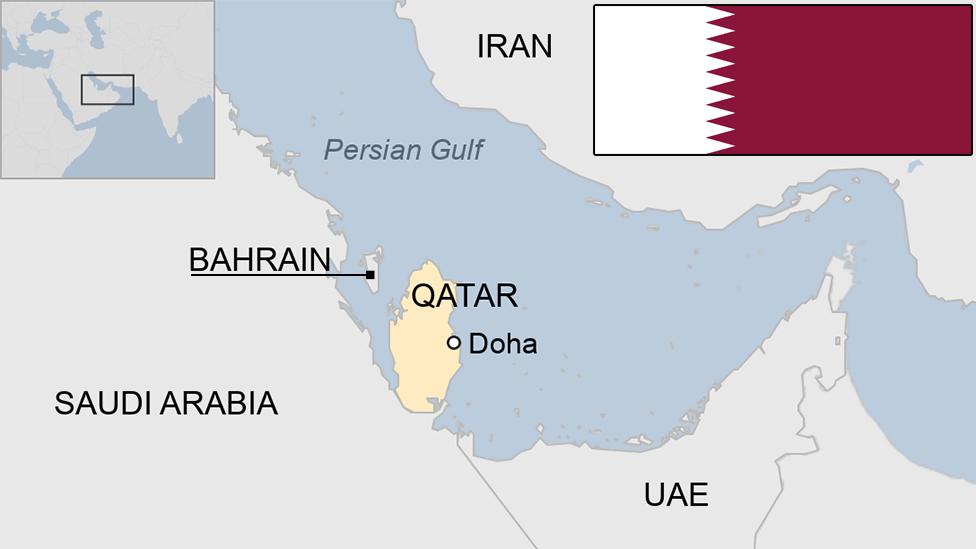Qatar flexing muscle in changing world
- Published
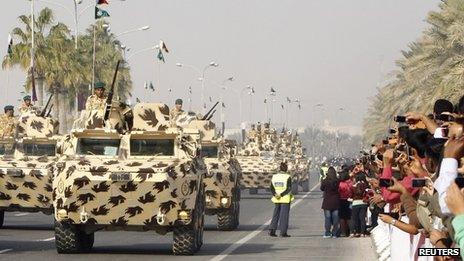
Qatar's military joined the Nato-led intervention in Libya, training the rebels
On a recent Sunday afternoon, the normally sober, orderly centre of Doha was transformed into a triumphant melee of noise and colour as thousands of people took to the streets to celebrate Qatar's National Day.
This year has been something of a coming of age for this small Gulf nation.
It strongly backed the rebels in Libya and has led regional criticism of the crackdowns on protesters by Syria's President Bashar al-Assad and Yemen's President Ali Abdullah Saleh.
"We have to contribute with whatever we have - politics, money or by supporting military action, whatever it takes to support other nations," said one Qatari reveller.
At the state-of-the-art studios of Libya TV in Doha, they know all about support from Qatar.
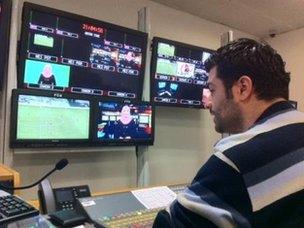
Libya TV is funded by Qatar's government
The station was set up in the early days of the Libyan conflict to counter the propaganda being broadcast on Libyan state TV by Col Muammar Gaddafi's supporters; it is still being completely funded by the Qatari government.
Qatar also joined the Nato-led military action in Libya, helped train the rebels, flew the injured to Doha for medical treatment and provided humanitarian aid.
It is estimated to have spent hundreds of millions of dollars so far on Libya.
Huda al-Srari, the general manager at Libya TV, denies the Qataris have any say in the channel's editorial output, and takes their support at face value.
"I have no proof that they are looking for something from Libya," she says. "They are looking for money? They are very rich. Maybe they are not looking for anything, just to help their sisters and brothers in Libya."
Region in transition
Unburdened by any threats or major concerns at home, Emir Sheikh Hamad Bin Khalifa Al Thani has been willing to step into the role usually occupied by other Arab leaders, and to use his time and money to reshape the region.
Qatar is one of the world's richest nations and its economy, heavily dependent on oil and gas, is expected to grow by about 18% in 2011.
"Some of the key big powers in this region - Egypt, Saudi Arabia - are in transition, so Qatar has found itself with the ability, the leadership and the money to play a role," says Salman Shaikh, an analyst at the Brookings Institute in Doha.
"I've often heard the lament in Qatar that the Arab world has fallen behind in terms of human development, in terms of technological advancement. So the hope is that we'll be moving towards a more stable and more development orientated region than it currently is."
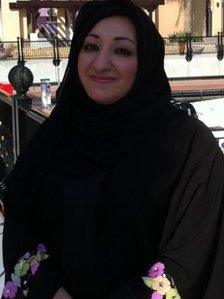
Qatari women have been allowed to vote and stand for office since 1999
In one of Doha's most distinctive districts, Souk Waqif, about 20 women were selling delicious homemade food one recent evening - stews, curries, spicy crepes and Arabian coffee.
All the women wore abayas - a traditional, long black Islamic garment - and most wore shaylas - a long scarf that is wrapped around the head - as well, a reminder that despite Doha's image as a glitzy centre of Western-style skyscrapers, Qatar is still a conservative Muslim society.
Like neighbouring Saudi Arabia, the royal family of Qatar and most indigenous Qataris follow the ultra-conservative Wahhabi school of Islam, but society in Qatar is more accepting of the role of women, says newspaper columnist Reem al-Hamri.
"I can drive; I can hold any position I want. Everyone is equal, women can be leaders," she says.
"For me wearing this - the abaya and the shayla - if it's going to cover my body and my hair, it's not going to cover my mind, my ideas."
Long-standing relationships
Still, there are concerns in Libya, Tunisia and Egypt that Qatar is using the unrest to support and finance Islamist parties.
Following elections in Tunisia, won by the moderate Islamist party, Ennahda, a demonstration was held outside the Qatari embassy in Tunis bemoaning Doha's influence.
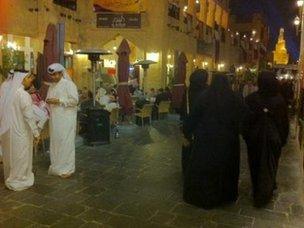
Qatar is one of the world's richest nations and its economy is expected to grow by about 18% in 2011
Some members of Libya's National Transitional Council have criticised Qatar's influence in the country, while in Egypt, Qatar has been accused of helping fund the Muslim Brotherhood.
Mr Shaikh, however, warns against reading too much into the connections, saying Qatar is not embarking on some ideological push.
"Qatar for the last 20, 30 years has been providing a home for a lot of the individuals who had to run away from places like Libya and Tunisia. These invariably have come from Islamist backgrounds. As these people get elected, Qatar has long-standing relationships with them."
Qatar ended its recent National Day celebrations with a spectacular fireworks display, a further sign of the confidence and optimism that permeates the entire nation.
With its neighbours in turmoil and the West distracted by economic woes, this tiny emirate has the money, the connections and willingness to play a much greater role on the world stage in the coming years.
- Published8 December 2011
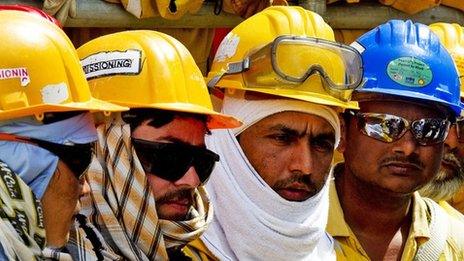
- Published2 December 2011
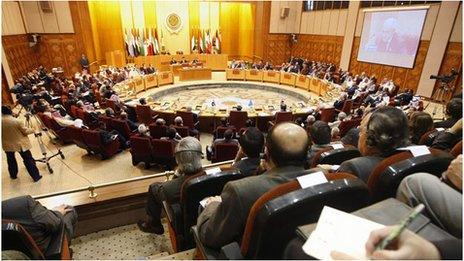
- Published1 November 2011
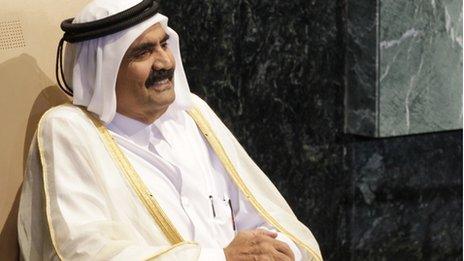
- Published7 September 2023
